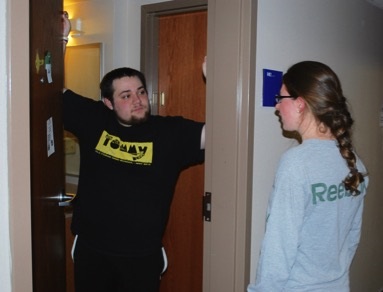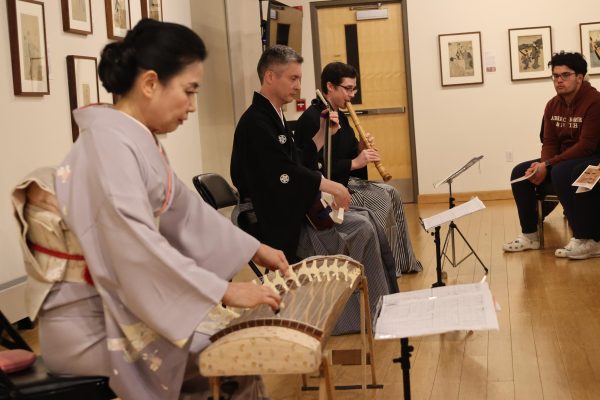Students Adjusting to Housing Policy Change Sparks

February 17, 2017
Students have mixed feelings about a new housing policy that requires traditional first year students to live in campus housing for a minimum of two academic years.
Officials say the rule, which affects first-year students whose permanent residence is further than a 40-mile radius of the university, is due to new research that indicates that students who live on campus for their first few years usually do better academically and socially, said Angelo Nudo, Assistant Director of Residence Life.
“Looking at the statistical research out there, students that stay on campus especially at the beginning of their academic careers perform better, adapt to school better, and they become more involved with the campus community,” Nudo said.
The university also considered the current housing policies for local schools, including Marywood University, Wilkes University and King’s College.
“All of them had some sort of live-on requirement for housing and most of them were two-years. Some colleges made it a requirement to live on campus for all four years, but we thought that would be too much. We still wanted to give older students the option to live on or off campus,” said Nudo.
According to Nudo, resident students within a 40-mile radius of the university who choose to leave campus prior to the end of the two-year period must submit a signed document from their parents or legal guardians stating they will be moving to their permanent, legal residence. However, they will not be permitted to live in a rental until junior year.
As of the spring semester of 2017, about 90 percent of undergraduate rooms are occupied, Nudo said.
“Right now we do have empty rooms, so we’re about 90 percent occupied at this point. Traditionally in our spring semester we’ll have fewer residents as students leave for internships that are not local. So we always do have some open beds but we have 960 current undergraduate beds on campus and we’re about a little over ninety percent occupied of those beds,” Nudo said.
Officials have notified current first year students, whom the policy will be affecting, prior to their arrival at the university.
First year speech language pathology major Heather Getten, however, regrets that the policy will prevent her from living with friends.
“I’ve had some upperclassmen friends ask me to move off of campus next year, so it stinks knowing that isn’t an option anymore. After all it would be cheaper, and I personally believe it makes you grow up faster since you won’t have someone else cleaning up after you or cooking for you,” said Getten.
Most first years already planned to stay on campus.
“It doesn’t really affect me because I planned on staying on campus sophomore year,” said William Kerwein, a first-year accounting major.
“The change in policy doesn’t really affect me because I had already planned on staying on campus,” said Noah Schweiger, first-year speech language pathology major.
Other first year students, Ashley Barnes a nursing major, and Brian Dice, government, law and national security, find it convenient to stay on campus.
“I like it since you’re close to all your classes. I’m excited to experience another year on campus,” said Barnes.
“It’s fine since I have a lot of friends on campus so it’s nice staying around them. It’s also easy to walk to get food and go to class,” said Dice.
Gabrielle Padilla, an undeclared first year student, thinks the university has a decent amount of options for housing even if living off campus is not an alternative.
“I think staying on campus for the first two years is fair since you’re still trying to get adjusted to everything. I also think we get a fair amount of housing options with there being the town houses, Gildea, McHale, McGowan and other buildings,” said Padilla.






